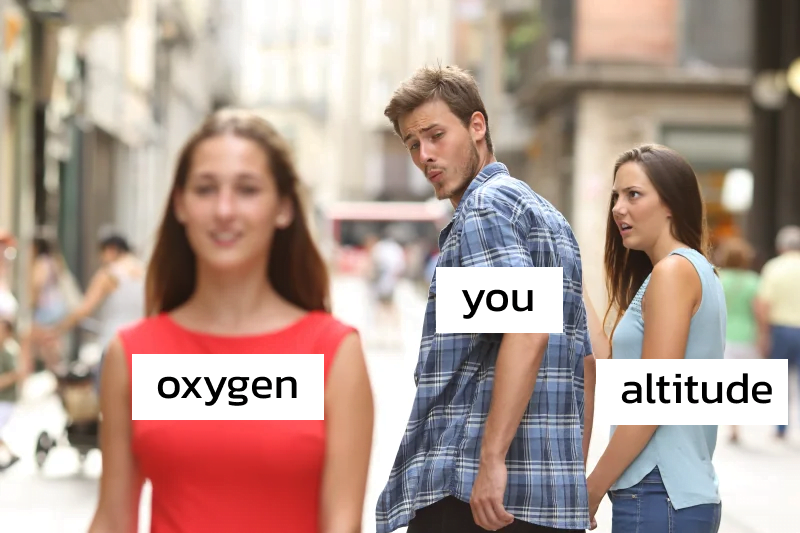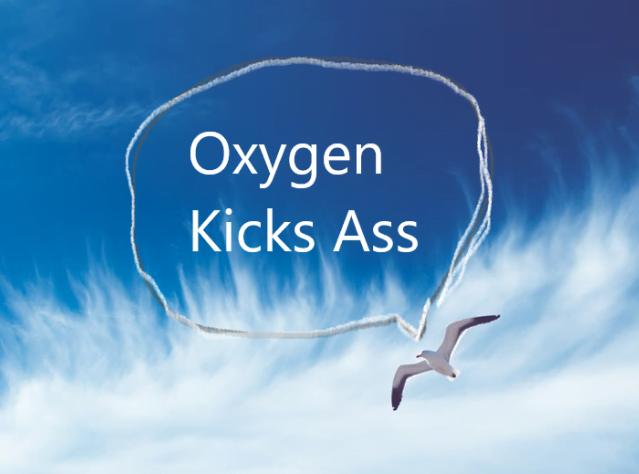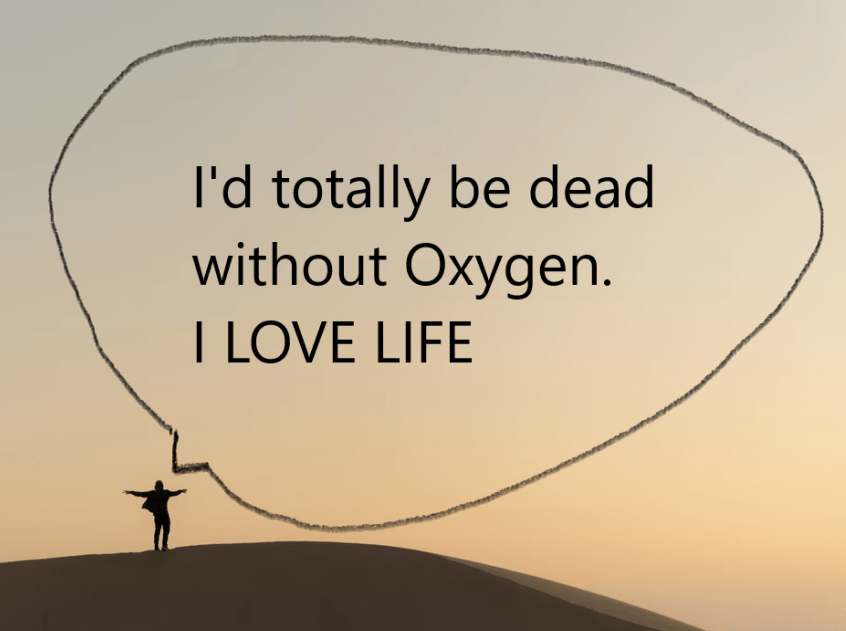
Altitude Sickness occurs when the body is subject to low oxygen environments for extended periods of time.
Did you know that the average person can live without food for up to 60 days, without water for up to 3 days, but can suffer permanent brain damage leading to death from just 4 to 6 minutes without Oxygen.
The catch is that oxygen is typically available all the time, and is usually everywhere you are. At sea level oxygen constitutes 20.9% of the air you breathe. At this concentration, the average human is able to breathe, process, and continually fuel their body indefinitely. Out of sight, out of mind.
Let’s take a step back and understand why oxygen is so important. Oxygen is needed in the chemical process called the citric acid cycle where ATP (Adenosine triphosphate) is produced. This ultimately powers many of the necessary processes in living cells (especially in the brain) for humans to survive.
So how does oxygen get from the air to the cells in your body where it can be used?
- You breathe air in through your mouth and nose and into your lungs.
- Once in your lungs oxygen binds to the hemoglobin (a protein molecule in your red blood cells) in your lungs’ capillary network. This turns your blood cells into little oxygen carriers.
- Your blood is then pumped by your heart through your vascular system. Your body can passively and intelligently know where oxygen is needed most, and direct blood to those areas (to some degree). For example, under physical exertion (like skiing or hiking) more blood is funneled to the muscles in your arms and legs to provide the power to meet the demands of these physical activities.
- Once the blood reaches its destination, the oxygen is dropped off and carbon dioxide is picked up and brought back to the lungs through veins.
- Once the blood cell gets back to the lungs it releases the carbon dioxide in our lungs where it’s exhaled.
This explains why people often get “winded” when performing short bursts of physical activity, especially if their body isn’t used to it. It’s a simple matter of the body not getting enough oxygen.
Breathing a sufficient amount of oxygen allows our cells to function at their best which in turn allows us to function at our best.

Let’s take a look at some causes of death that can be attributed to loss of oxygen (aka Cerebral hypoxia)?
- Drowning
- Drug overdoses (lung muscles stop)
- Carbon monoxide poisoning (replaces oxygen in your blood)
- Stroke (blood blockage causing failure to bring oxygen to brain)
- Heart attack (blood blockage in artery causing failure to bring oxygen to brain)
- Extremely high altitudes (25,000+ ft – body can’t acclimate, lungs can’t get enough oxygen and cells begin to die).
Although these are some examples of when oxygen is abruptly cut off – it’s not always so binary. It’s no surprise that when the oxygen naturally thins out as the altitude goes up (decreasing that 20.9%) many people have adverse effects of the lack of oxygen in the air.
Even though breathing oxygen isn’t as satisfying as eating a delicious handmade pizza, or drinking an ice-cold beverage on a hot day – it’s the most important thing you do all day.














